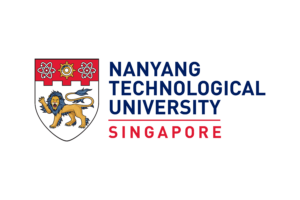Organizing Committee
Co-chairs
- Han Fei (National University of Singapore)
- Wilderich Tuschmann (Karlsruhe Institute of Technology)
- Kelin Xia (Nanyang Technological University )
- Yuguang Wang (Shanghai Jiao Tong University)
Overview
As the fourth paradigm, data-driven sciences can fundamentally change sciences and pave the way for a new industrial revolution. The remarkable achievements of AlphaFold models in deciphering protein folding marks a pivotal moment. The amazing performance of ChatGPT and Sora ushers in a new era for AI generated content and opens up a world of opportunities. Despite such strides, the ongoing challenge remains in developing highly efficient data representations and featurization models. Mathematically, computational and discrete geometries are powerful tools for data characterization, representation and modelling. Notably, geometric deep learning has played a pivotal role, elevating the capabilities of learning models to grapple with intricate topological and geometric structures inherent in complex datasets. The synergistic integration of geometric methodologies with learning models holds immense potential to fundamentally reshape the landscape of data sciences.
This workshop aims to combine the advanced geometric tools with data-driven learning models. We will cover recent advancements from discrete geometry, computational geometry, geometric data analysis, to geometric deep learning. The topics treated include, but are not limited to:
- Discrete Ricci curvatures; Ollivier Ricci curvature; Forman Ricci curvature; Sectional curvature
- Conformal geometry
- Gromov-Hausdorff distance
- Information geometry
- Index theory
- Discrete exterior calculus and its application; Discrete Laplace Operator; Discrete Optimal Transport; Discrete mapping; Discrete parametric surface
- Geometric flow and applications (Ricci curvature flow, Mean curvature flow, etc)
- Geometric modelling
- Combinatorial Hodge theory; Hodge Laplacian; Discrete Dirac operator
- Dimension reduction (Manifold learning, Isomap, Laplacian eigenmaps, Diffusion maps, UMAP, MAPPER, Hyperbolic geometry, Poincare embedding, etc)
- Geometric signal processing
- Geometric deep learning: Graph neural networks; Weisfeiler Leman graph isomorphism; Graph neural diffusion; PDE-based GNNs; Equivariant GNNs; Clifford GNN
- Topological deep learning: Simplex neural network; Cellular neural network; Sheaf neural network; Quiver neural network
- Hyperbolic geometric graph; Hyperbolic Deep Neural Networks
- Geometric analysis of deep learning; Geometric GAN; Explainable deep learning; Geometric optimal transportation
- Metaverse: 3D vision; SLAM; digital geometry processing; digital manufacturing
- Geometric/topological learning models for molecular data from chemistry, biology, and materials
Part Two of the program will be held in 02–06 Jun 2025.
Venue
IMS Auditorium
Scientific Committee
- David Gu (Stony Brook University, USA)
- Jürgen Jost (Max Planck Institute for Mathematics in the Sciences, Germany)
- Kefeng Liu (University of California, Los Angeles, USA)
- Guowei Wei (Michigan State University, USA)
Jointly sponsored by Nanyang Technological University


